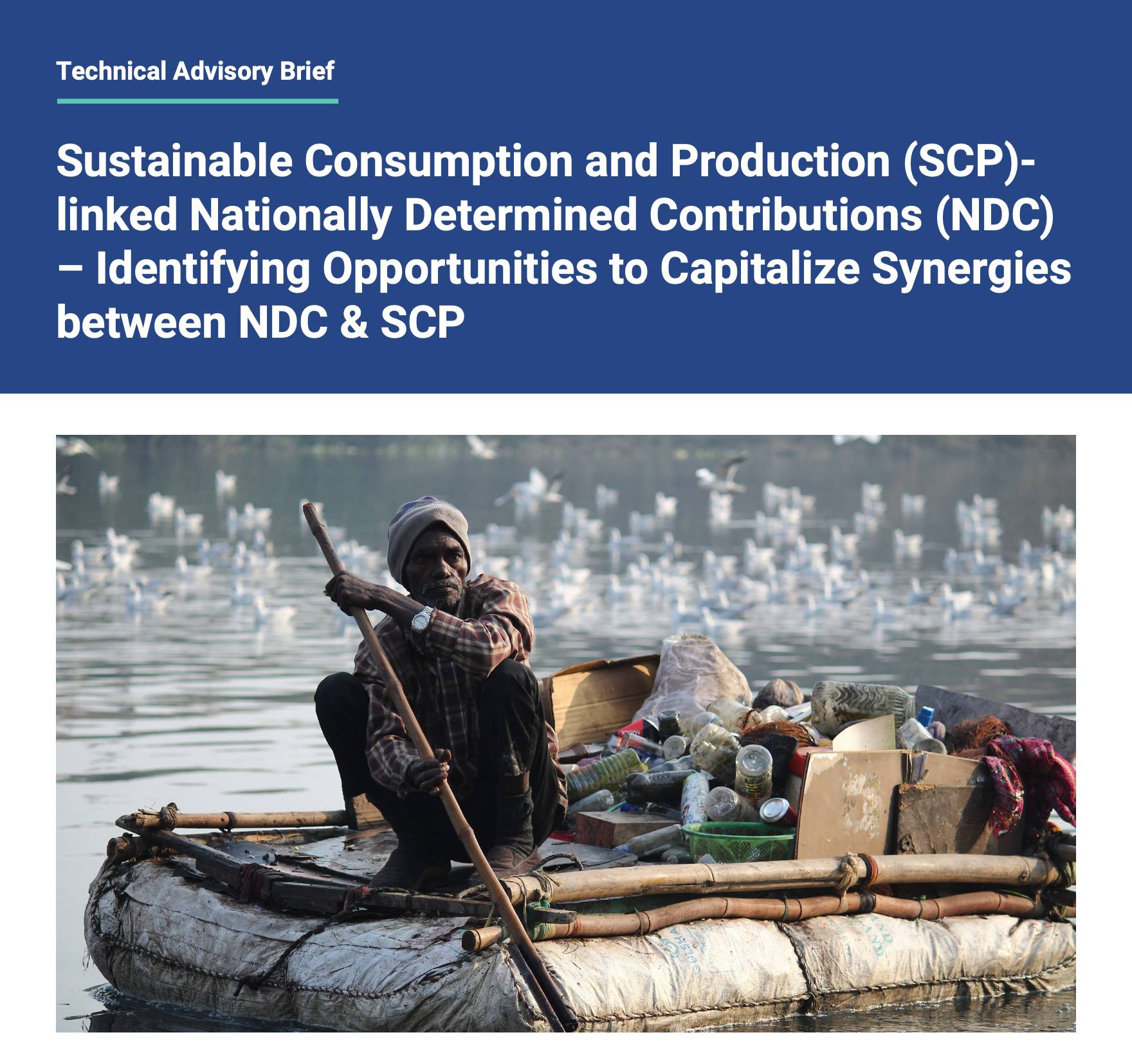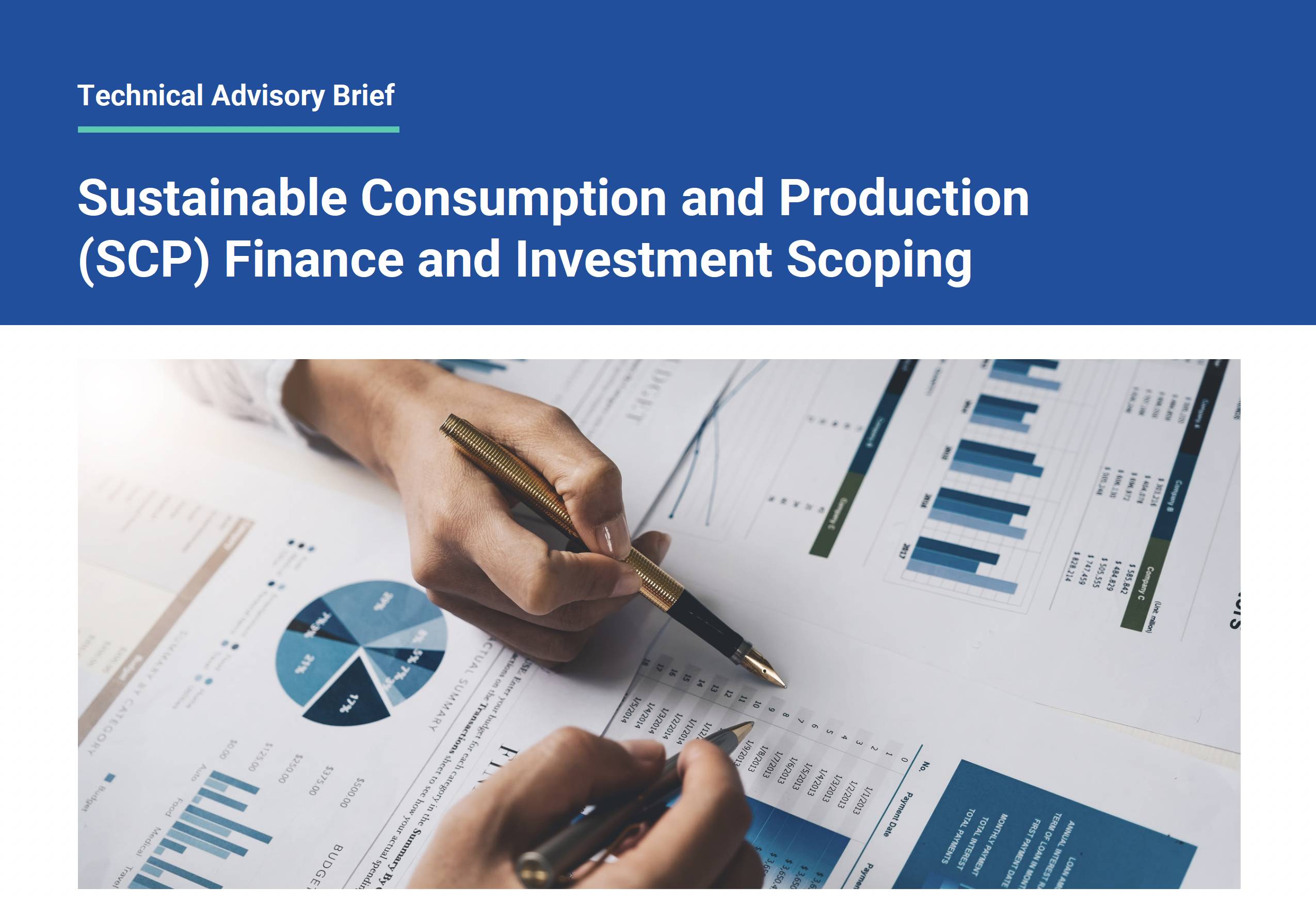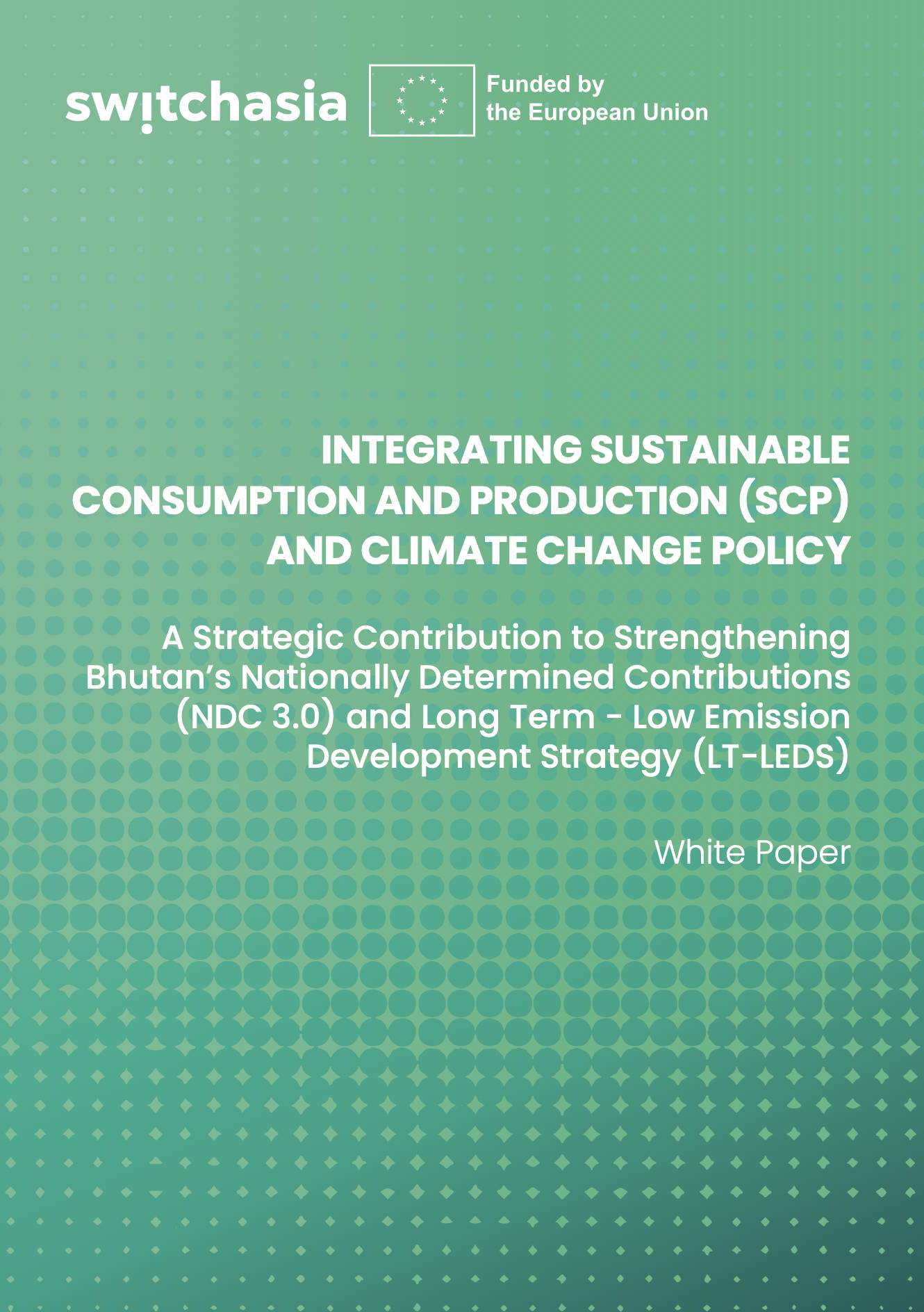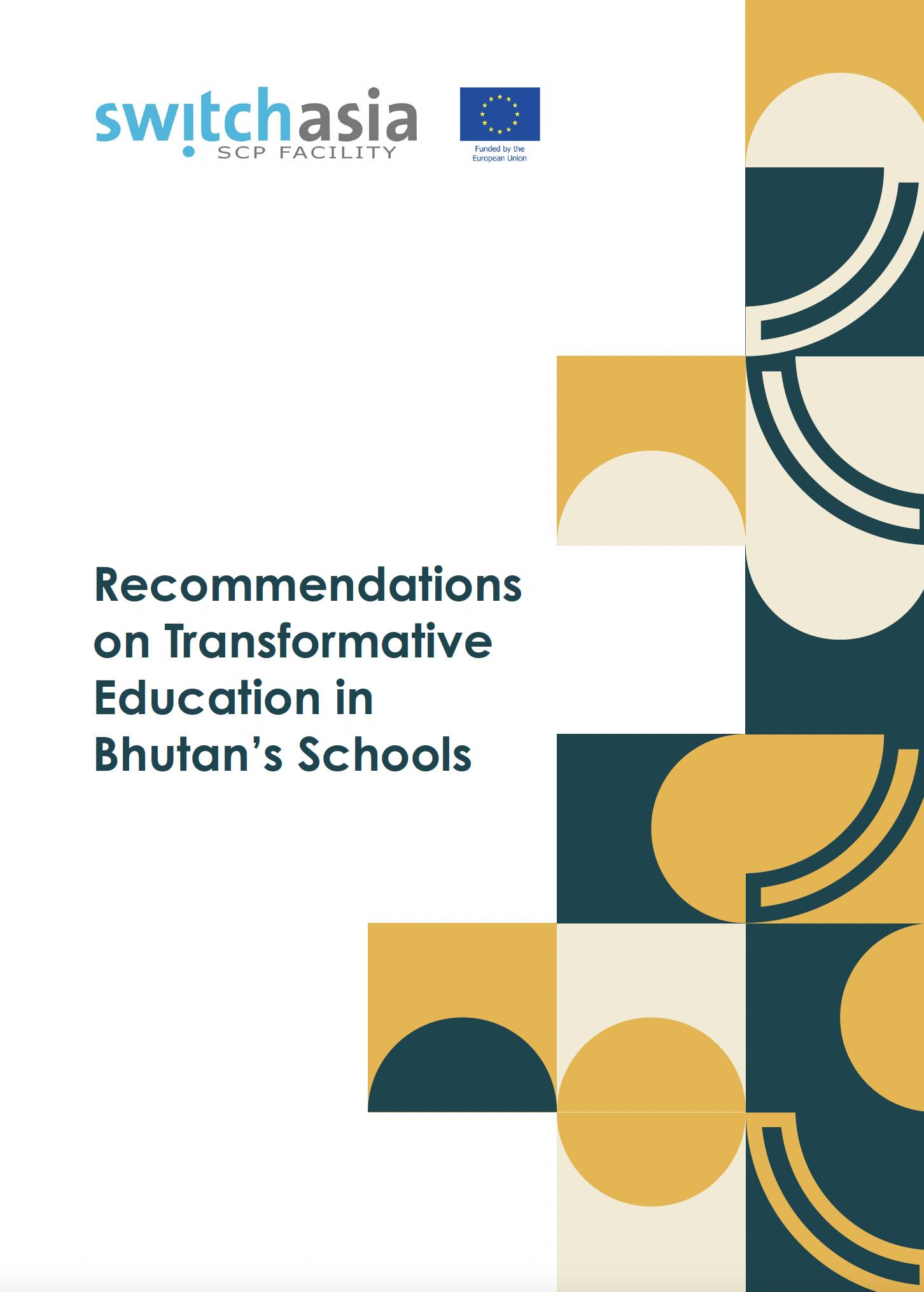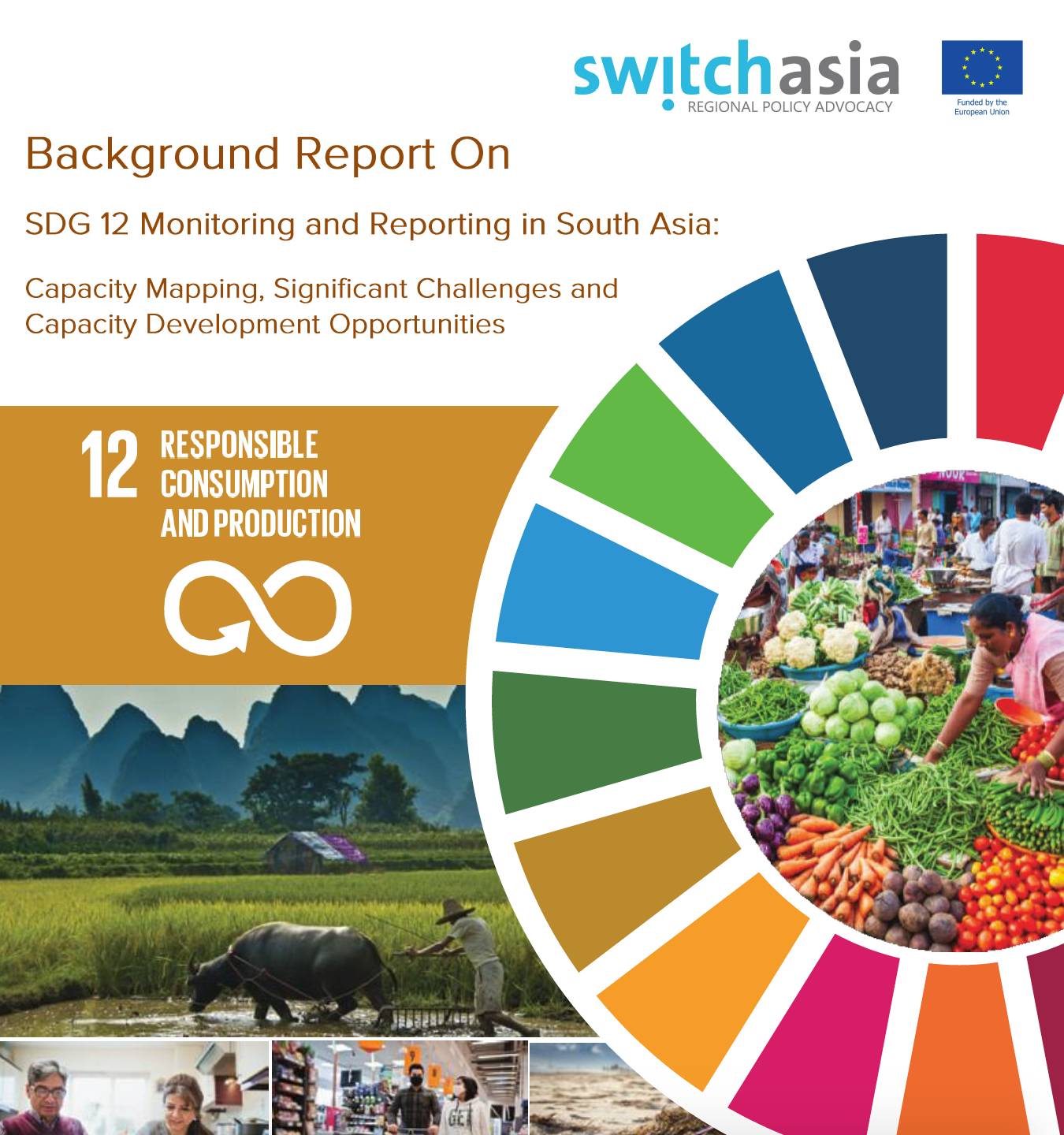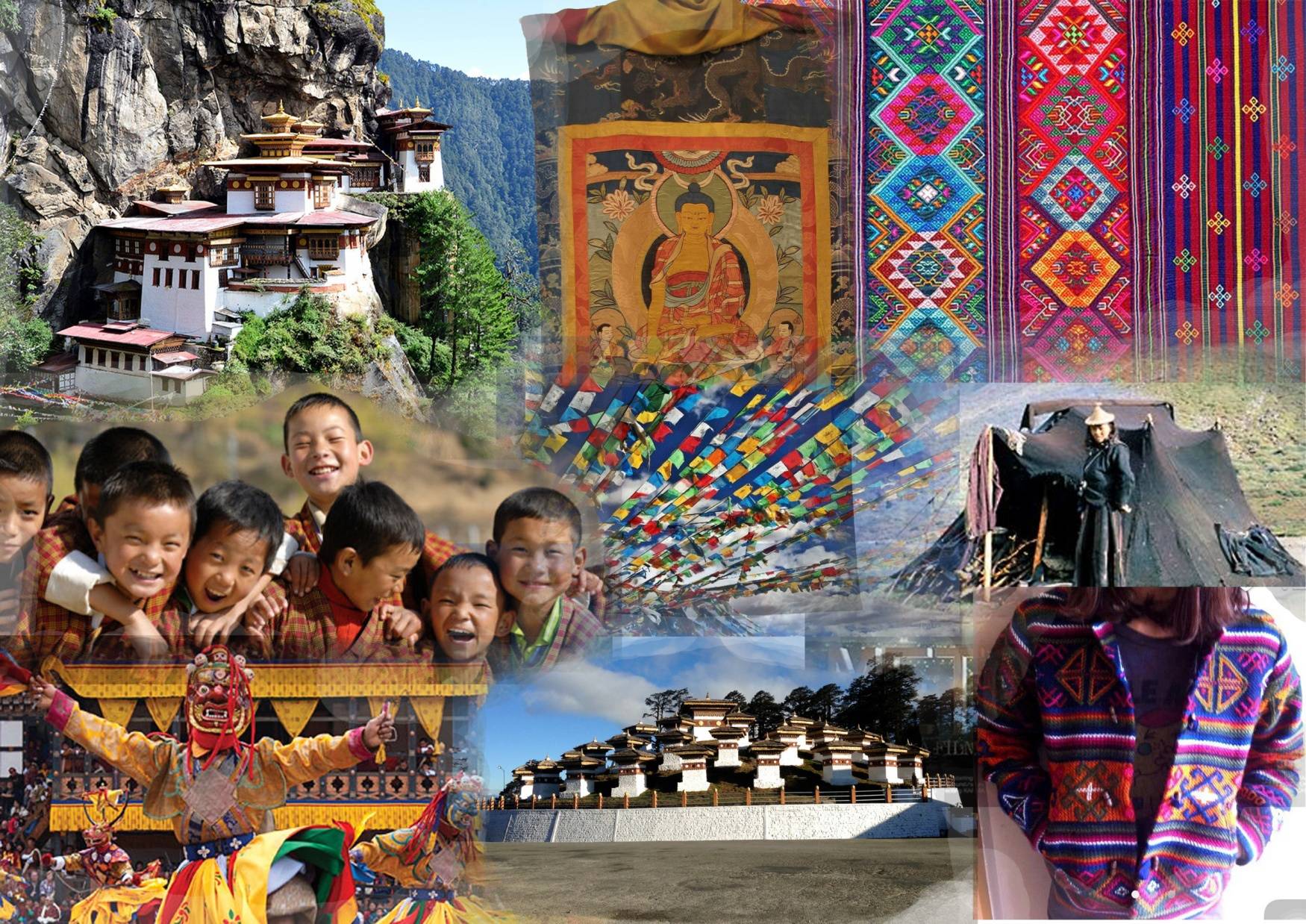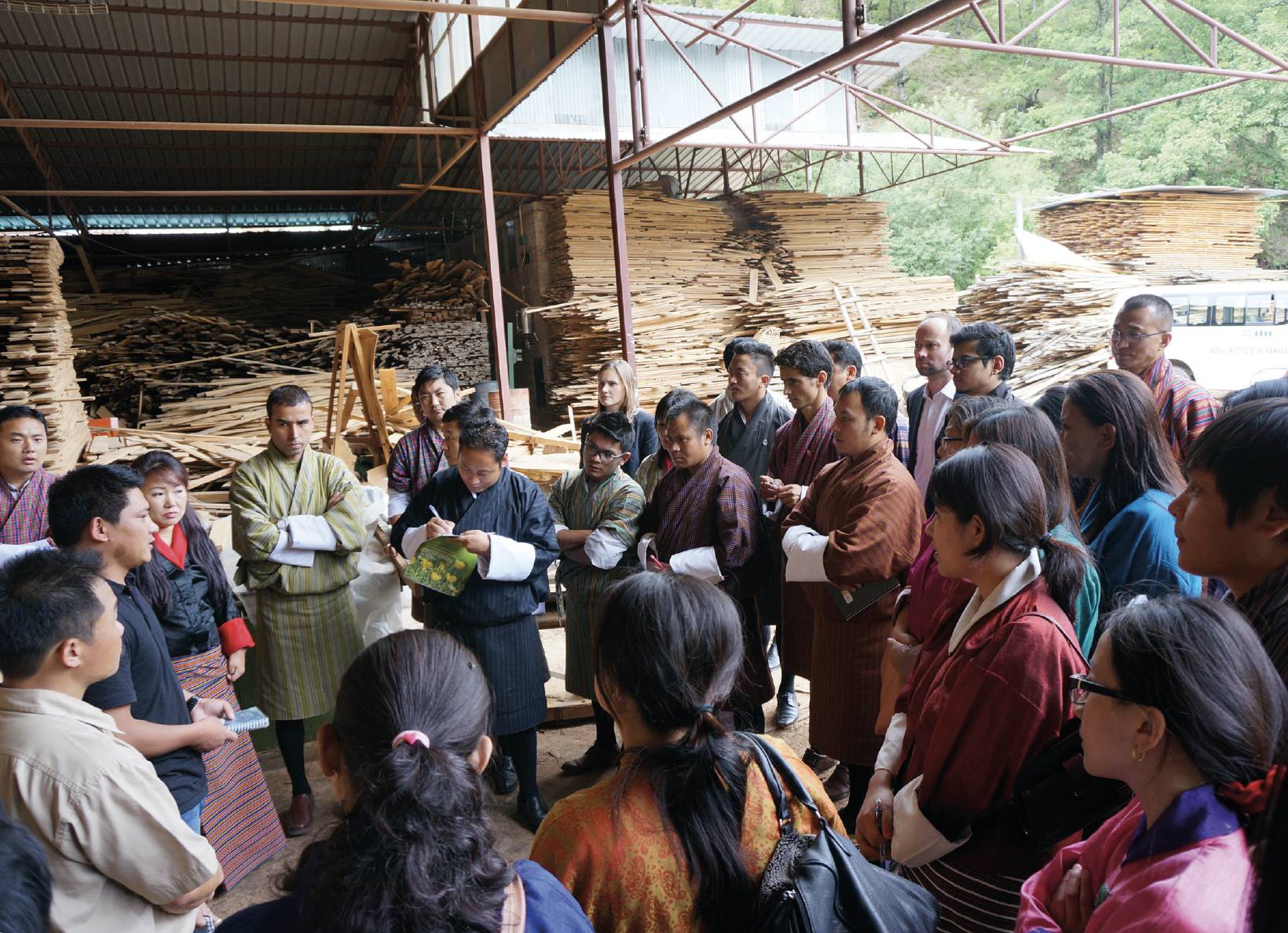
SCP Context
Bhutan’s 13th Five-Year Plan 2024–2029[1], framed as the “last mile” for achieving the SDGs, integrates commitments to Sustainable Consumption and Production (SCP) within its broader development agenda. SCP efforts are reinforced by the National Waste Management Strategy 2019[2], which establishes principles for waste segregation, recycling, and reduction and by the Zero Waste Bhutan program[3], a government-led initiative promoting community engagement and eco-friendly practices. Complementing these, the Renewable Natural Resources (RNR) Strategy 2040[4] advances sustainable agriculture, forestry, and food systems. Bhutan’s approach is further guided by long-term economic planning, including the 21st Century Economic Roadmap[5], ensuring that sustainable resource management aligns with environmental conservation, social well-being, and economic development.
Connection to the Global Agenda
Bhutan aligns national priorities closely with the 2030 Agenda and the Paris Agreement. The country has presented Voluntary National Reviews (VNRs) in 2018[6], 2021[7], and 2025, showcasing progress toward sustainable development and the integration of Responsible Consumption and Production. The strategic planning, perspective planning, and regulatory coordination functions are performed by the Cabinet Secretariat, Office of the Prime Minister and Cabinet. The responsibility for managing external grants is performed by the Department of Macro-Fiscal and Development Finance, Ministry of Finance. The central and local government planning functions are done by the Department of Planning, Budget and Performance, Ministry of Finance.
A key solution to Climate Change
Bhutan is committed to low-carbon development and climate resilience, with its NDC reaffirming the country’s pledge to remain carbon neutral.[8] The Climate Change Policy 2020 and the Long-term Strategy (LTS) 2023[9] provide pathways to maintain carbon neutrality and achieve net zero by 2050. Sectoral policies, including the Sustainable Hydropower Development Policy 2021[10], advance clean energy, while Bhutan’s Third Nationally Determined Contribution (NDC) to the Paris Agreement outlines mitigation and adaptation priorities in energy, agriculture, forestry, and waste, highlighting the country’s key focus areas for future climate action and sustainable development.[11]
Priority sectors for Sustainable Consumption and Production
- Promoting resource efficiency and circular economy practices in waste management, including establishing Material Recovery Facilities (MRFs) and supporting waste entrepreneurs.[12]
- Advancing green innovation and enterprise development by incentivizing recycled materials, fostering local entrepreneurship, and creating sustainable livelihoods aligned with GNH values.12
- Strengthening sustainable tourism by building institutional capacities for SCP of tourism products and services, and promoting Bhutan as a green, inclusive, and competitive destination.[13]
- Enhancing sustainable agriculture and food systems through climate-smart practices, improved harvest and post-harvest interventions, and development of agricultural value chains.13
[1] Royal Government of Bhutan. (2024). 13th Five-Year Plan 2024–2029
[2] Royal Government of Bhutan. (2019). National Waste Management Strategy 2019
[4] Ministry of Agriculture and Forests. (2021). Renewable Natural Resources (RNR) Strategy 2040
[5] Office of the Prime Minister and Cabinet. (2025). Bhutan 21st Century Economic Roadmap
[6] Royal Government of Bhutan. (2018). Voluntary National Review Report 2018
[7] Royal Government of Bhutan. (2021). Voluntary National Review Report 2021
[8] Royal Government of Bhutan. (2021). Second Nationally Determined Contribution
[9] Ministry of Energy and Natural Resources. (2023). Bhutan’s Long-Term Low Greenhouse Gas Emission and Climate Resilient Development Strategy (LTS)
[10] MJnistry of Economic Affairs. (2021). Sustainable Hydropower Development Policy 2021
[11] UNDP. (2025). Preparation of Bhutan’s NDC 3.0 and enhanced strategies, systems and in country capacities to achieve its climate objectives and targets
[12] Bhutan Ethical Society. (2025). Circular Economy: Turning Waste into Wealth in Bhutan
[13] SWITCH-Asia Programme. (2025). A Strategic Contribution to Strengthening Bhutan’s Nationally Determined Contributions (NDC 3.0) and Long Term - Low Emission Development Strategy (LT-LEDS)
A look back at milestones that shaped our work
2018
SCP Facility
- Preliminary assessment of SCP related policies, activities, needs/gaps, and opportunities.
Regional Policy Advocacy Component (RPAC)
Facilitated the participation of Bhutanese key-stakeholders in the following regional/ sub-regional activities:
- Asia Pacific Low Carbon Lifestyles Challenge (19-22 Mar 2018), hosted by Thailand, regional level
- Transforming Asia Pacific: Innovative Solutions, Circular Economy and Low Carbon Lifestyles (17-19 Sep 2018), hosted by Thailand, regional level
- Asian Circular Economy Leadership Academy (3-8 Dec 2018), hosted by Thailand, regional level
2019
SCP Facility
- A multi-stakeholder consultation was held on 6 March 2019;
- The SCP Facility is collaborating with the 10YFP Secretariat, particularlyin relation to a UNDA’s funded project implemented by the 10YFP Secretariat and UNEP;
Regional Policy Advocacy Component (RPAC)
Facilitated the participation of Bhutanese key-stakeholders in the following regional/ sub-regional activities:
- “Sustainability Reporting – Thinking Circular Economy by Businesses” - This event was organised back-to-back with 2019 Asia Pacific Forum on Sustainable Development (27 Mar 2019), hosted by Thailand, regional level
- Businesses Accelerating Inclusive Green Economies – "Leaving No One Behind” - Side event on the Responsible Business and Human Rights Forum co-organised by the Royal Thai Government, OECD, United Nations Development Programme (UNDP), ESCAP, International Labour Organization (ILO) and with the participation of the UN Working Group on Business and Human Rights (11 Jun 2019), hosted by Thailand, regional level
- WEBINAR: SDG 12.1 Reporting for SWITCH-Asia Countries – Connecting the dots between actions and reporting (5 Nov 2019), regional level
- Policy Dialogue on SDG12 Reporting (21 Nov 2019), hosted by Vietnam, regional level
- 2019 SWITCH-Asia Leadership Academy on Circular Economy (2-6 Dec 2019), hosted by China, regional level
- "Supporting decision making on SCP through training on Sustainable Procurement” - This event was organised back-to-back with International Conference on Sustainable Energy and Green Technology 2019 (11 Dec 2019), hosted by Thailand, regional level.
2020
SCP Facility
- The National Focal Point is in dialogue with the SCP Facility, regarding the operationalisation of the SCP Strategy by preparing a sector-specific Action Plan, thereby advancing resource efficiency, circular economy and SCP including consumer awareness.
Regional Policy Advocacy Component (RPAC)
Facilitated the participation of Bhutanese key-stakeholders in the following regional/ sub-regional activities:
- SWITCH2Green Meeting (Apr 2020)- RPAC initiated the discussion and shared the first report in 2020.
- Moving the Needle on Climate Change (10 Jun 2020)– The event was co-organised by the UNESCAP as a part of the 2020 Virtual United Nations Responsible Business and Human Right Forum (RBHRF), regional level
- World Environment Day 2020 (5-7 Jun 2020)– A media kit was provided to call for action to promote SCP as a part of the 2020 World Environment Day (WED) celebration, regional level
- Intervention in regional forum: Webinar on Sustainable Lifestyles for Plastics & Packaging Waste Management During a Pandemic COVID-19 (6 Aug 2020), regional level
- SCP in Tourism: Opportunities and Challenges with COVID-19 (8 Oct 2020), regional level
- Innovation and Connectivity through Farm to Fork (13 Nov 2020), regional level
- Sustainable Lifestyles for SCP (19 Nov 2020), hosted by Thailand, regional level
- Sub-regional Workshop on SPP for SACEP Countries (25 November 2020), the event was organised in partnership with South Asia Co-operative Environment Programme (SACEP) for South Asia region, Sub-regional level
- Support to Steering Committee of SWITCH-Asia (3 Dec 2020)– RPAC provided support for the annual Steering Committee Meeting and proposed 2021 workplan, regional level
- Regional Policy Dialogue on Circular Cities (4 Dec 2020), regional level
- Regional Dialogue Driving Mechanisms for Eco-Design in Asia (9 Dec 2020), regional level
- Leadership Academy on Circular Economy 2020 (14-18 Dec 2020), regional level
- Webinar: Innovations & Startups (16 Dec 2020), regional level
2021
SCP Facility
- On the basis of previous discussions and analyses, a concept note on integration of SCP as a concept into education to strengthen SCP understanding and capacities among Bhutan’s education stakeholders and policymakers was developed by the SCP Facility and approved by both the national government and the EU Delegation.
- Three experts were recruited and the assignment was launched in November 2021.
Regional Policy Advocacy Component (RPAC)
Facilitated the participation of Bhutanese key-stakeholders in the following regional/ sub-regional activities:
- Contextualising the Circular Economy for Action (4 Feb 2021), regional level
- Technology for Circular Economy: A Prologue to the 2021 SWITCH-Asia Leadership Academy (25 March 2021), regional level
- Circular Economy and Sustainable Lifestyles Course (18 May 2021) – launch of offline course on SCP for policy makers and young professionals, regional level
- South Asia Policy Dialogue on the Role of Businesses in Accelerating SCP (23 March 2021) – to disseminate the findings of the RPAC Study on SCP – Stocktaking of Perspectives in South Asian Business, sub regional level
- GO4SDGs High level launch in Asia and the Pacific (21 April 2021), regional level
- World Environment Day 2021 (4 June 2021), regional level
2022
SCP Facility
- The experts have worked to deliver analysis and recommendations on current status and opportunities for integrating SCP issues into the school curriculum, including through consulting with national education stakeholders; the approach is also applicable to other countries.



